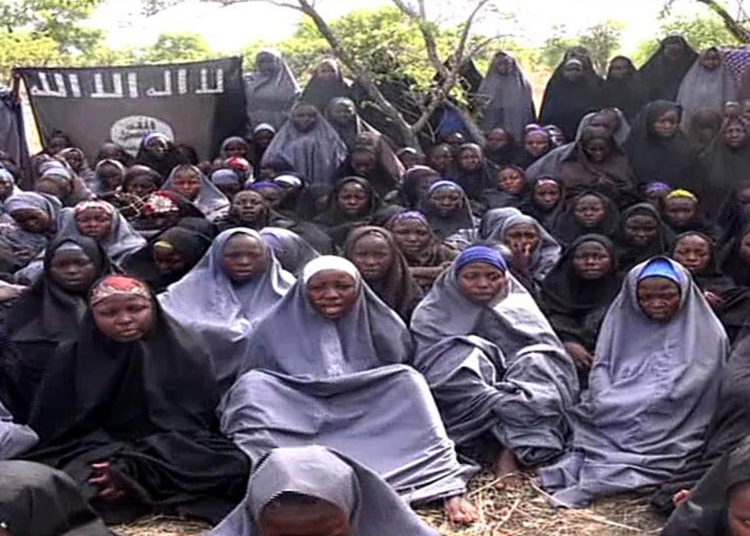It has been nine long years since Boko Haram terrorists attacked Girls’ Secondary School, Chibok, Borno State, and abducted 276 schoolgirls from the school’s dormitory. Of that lot, 98 of the girls are still in captivity.
The Chibok girls’ abduction, which occurred on April 14, 2014, was the first time in the world such a large number of vulnerable girls would be abducted and, expectedly, it captured the attention of the global community, with world leaders in politics, business, sport and entertainment as well as others expressing outrage at the incident and calling for their release.
In fact, the hashtag, #BringBackOurGirls (#BBOG), trended all over the world, and later birthed a civil society movement in Nigeria under the same acronym, led by prominent women activists like Aisha Yesufu and Hadiza Bala, and former World Bank chief and minister of education, Dr Oby Ezekwesili, which staged months-long protests in Abuja to focus attention on the plight of the girls and keep pressure on the federal government to continue looking for them.
The lethargic response of the President Goodluck Jonathan administration to this challenge coupled with some perceived conspiracy by certain state agents meant that the administration could not recover the schoolgirls as was expected and, ultimately, it contributed to President Jonathan failing to win re-election in 2015.
And despite the succeeding administration of President Muhammadu Buhari pledging to rescue the girls, it has done so with limited success. It secured the release of about 100 of the girls in two instalments using what it called back-channel communication with the captors. It, however, denied paying money in exchange for the girls.
Along the line, some of the girls escaped their captors or returned when their (captors) died, while some others were rescued by soldiers in military operations. Most of those found had been put in the family way by the terrorists. In all, about 98 of them are still unaccounted for, with concerns that some of them may have died in the crossfire between troops and terrorists and other factors.
There have been encouraging stories about some of the freed girls as they were able to re-launch their education both locally and abroad. Some were enrolled at the American University of Nigeria (AUN), Yola, under a federal government scholarship scheme while others were sponsored by foreign donors. In May 2022, one of the girls, Lydia Pogu, got a Master’s degree from the Southeastern University, USA, while others have graduated from other institutions.
Chinese Miners Funding Militant Groups In Nigeria – Report
Since the Chibok girls’ abduction, thousands of other students have suffered some form of serious violation of their rights, starting from the Dapchi mass abduction of female students in Yobe State in 2018 to as recently as April 7, 2023, when 80 children were abducted by militants in Tsafe Local Government Area of Zamfara State.
According to the United Nations Children’s Fund (UNICEF), since 2014, there have been over 2,400 incidents of grave violations over 6,800 children in the north-east, with the most common violations being the recruitment or use of children by armed groups, followed by abductions of children – about 693 incidents, and killing and maiming of children – about 675 incidents.
The impact of terrorist attacks on education is alarming, with repercussions that will likely affect generations. According to the Teachers’ Registration Council of Nigeria (TCN), between 2009 and 2022, about 2,295 teachers were reportedly killed in attacks, over 19,000 teachers were displaced, more than 1,500 schools closed because of insecurity, with 910 schools destroyed.
Sadly, nine years after Chibok, the abduction students shows no sign of stopping, with bandits escalating the aberration from the north east to the north west and north central geopolitical regions, with Zamfara, Jigawa, Niger, Kaduna, Kebbi among the states to record attacks. Obviously, the federal government’s Safe Schools Initiative has failed to achieve the desired results.
In recent months, with the electioneering for the 2023 general election, not much is heard about efforts to rescue the remaining Chibok girls, and with the Buhari administration winding down in a matter of weeks, (on May 29), there is a chance some of the abducted girls will remain in the forest beyond the life of this administration. As a newspaper, we urge the next administration to re-energise the search for the Chibok girls to bring a closure to this most unfortunate part of our nation’s recent past.
It should also restrategise the fight against terror in order to free all the students in captivity and forestall further terror attacks on our educational institutions.





